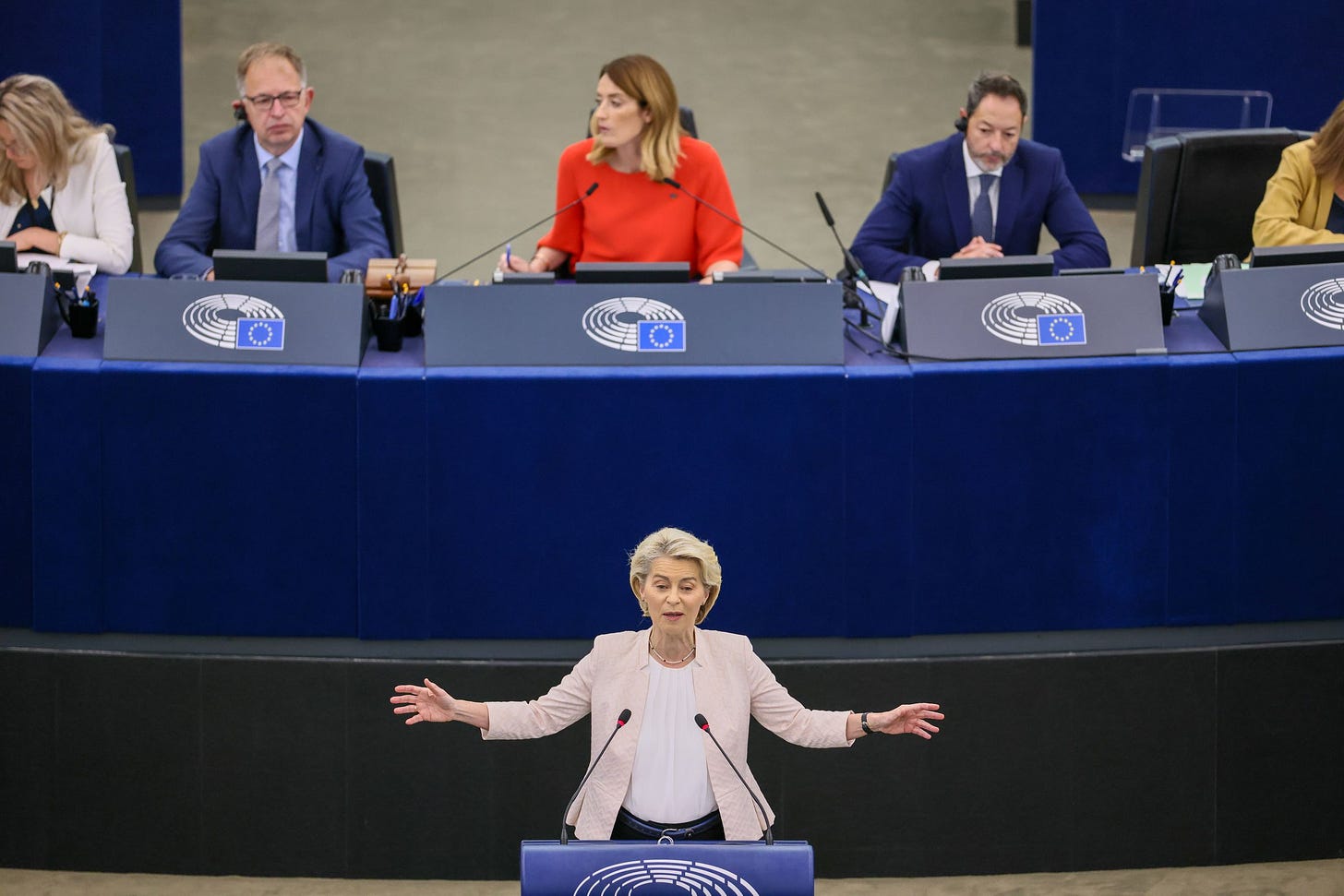
On 17 July, the European Court of Justice (ECJ) published a ruling holding the European Commission (EC), led by President Ursula von der Leyen, responsible for concealing segments of COVID-19 vaccine procurement contracts from the European Parliament. Less than 24 hours later, von der Leyen was confirmed for a second term during a parliamentary session in Strasbourg.
During her re-election campaign, von der Leyen worked diligently to secure support beyond her home European People’s Party (EPP) group. To ensure the required majority, she needed at least 173 additional votes, on top of the 188 guaranteed by the EPP. By 18 July, members of the Socialists & Democrats, the liberal Renew group, and the Greens—who had initially filed the complaint to the ECJ—announced their support, describing von der Leyen as a stabilizing figure in uncertain times for Europe.
In her initial address to the parliamentarians, von der Leyen promised “prosperity and competitiveness” for the European Union over the next five years. She emphasized the European Green Deal, pledging further efforts towards renewable energy and environmental protection. However, several members of parliament called her out for what they described as greenwashing and failure to take concrete steps in this area. The Left parliamentarian Rudi Kennes criticized the vague character of von der Leyen’s commitment to just green policies, citing her inaction on preserving jobs in sectors that could prove crucial for the EU’s green transition. He pointed to the potential closure of an Audi factory in Brussels as an example.
Von der Leyen also prioritized security, defense, and border control in her speech, announcing the creation of a European Defense Union, new commissioner posts for defense and the Mediterranean, approximately tripling the number of Frontex guards, and just about doubling Europol staff. The aim of these measures, according to the EC President, is to “rebuild, replenish, and transform national armed forces” rather than breaking away from NATO. One of the first steps towards this better-armed EU will be incentivizing private defense investment with support from the European Investment Bank.
What the defense and international policy agenda will certainly not mean, judging from the guidelines presented on Thursday, is taking a strong stance on the genocide Israel is committing in the Gaza Strip. A side note in von der Leyen’s speech, the brutal attacks on Palestinians were reduced to an unfortunate bloodspill, with no guarantees given that the EC would act to stop it. Instead, von der Leyen stated she would work towards a two-state solution.
In her speech, Von der Leyen merely brushed upon the social and economic issues affecting millions in the EU. Her approach remained market-oriented, with only minor concessions on housing and living costs. Among others, Marc Botenga of the Workers’ Party of Belgium criticized her for inaction on tax justice and strengthening public services.
“Millions of Europeans are living in poverty or are at risk of falling into poverty. Did Ursula von der Leyen seek funds from multimillionaires [to address this]? No. Did she impose taxes on the excess profits of European multinationals? No. On the contrary, she provided support to these multinationals,” Botenga said.
There is little indication that von der Leyen’s policies will change in her new term. With expected austerity measures and increased defense spending, more Europeans will be deprived of basic social rights. Some parliamentarians have already pledged to oppose this direction actively.
“Your Europe is not our Europe, Mrs. von der Leyen. Against your Europe of austerity and the market, you can count on us defending the Europe of humanity and solidarity,” said Manon Aubry, co-chair of The Left, announcing the bloc’s vote against von der Leyen’s presidency.




